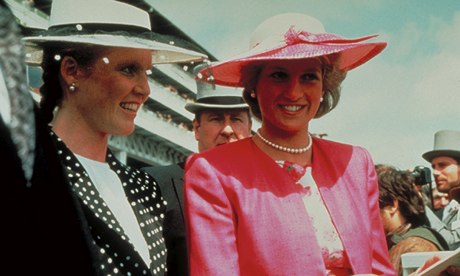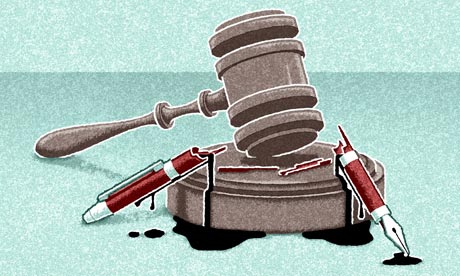| 
| Gary Kirsten: "When the heat is on in Test cricket, it's not your skill but your character that is being tested" © PA Photos |
| Enlarge
|
|
|
|
As cricket advances into the entertainment industry, so the celebrity limelight shines more brightly on the players. Cricketers today enjoy more money, more glamour, more exposure than ever before. It's fun, the party is on, but are they sufficiently prepared for the hangovers that lurks in the shadows?
These come in many forms and manifest themselves in the form of scuffles in nightclubs, drink driving, sexual indiscretions, drug abuse, cheating and match-fixing - sometimes driven by a celebrity's sense of being above the law, invincible, and sometimes even immortal.
Cricket stars are easily seduced into defining themselves, their self-confidence and their happiness, by their name, fame, money and the results they produce: happy when they do well in these regards, grumpy and anti-social when not. A darker shadow of the limelight is where players buy into the image of fame (of being a special person) that fans and the media create for them. As they do this, they become more alienated from themselves, losing touch of who they authentically are. They begin to see themselves as superior to ordinary mortals, not only better at the skill that made them famous but also better and more important as people. They struggle to be alone, uncomfortable in their own company. Yet while surrounding themselves with others, they become incapable of genuine relationships.
A loneliness and creeping discontentment begins to shroud the star. This inner emptiness drives the celebrity to wear their "happy", "tough" or "I'm okay" masks while looking to find temporary happiness out there, in more success, fame, money, sex, drink or drugs.
Cricket has plenty of known instances of depression and substance abuse, one of the highest suicide rates of all sports, and a divorce rate to match.
It's about who you are, not what you do
There is another road, less-travelled by superstars, which leads out of the shadows of the limelight and into the light of personal and professional success, sincere relationships, lasting contentment and an all-round fulfilling life.
Speaking to me in 2004, Gary Kirsten said: "I'm searching for the authentic Gary Kirsten - someone who is accepting of his shortcomings and is confident in the knowledge of who he is. One who is willing to have a positive influence and add value to society in my own unique way. I want to make a difference to people's lives and give them similar opportunities that I have had. My perception of success is not about how much money I can earn in the next ten years but rather what impact I made on people I came into contact with."
Gary spent thousands of hours mastering his strokeplay, which had brought him great success and recognition. To this pursuit of professional mastery, he added personal mastery. He often says that when the heat is on in Test cricket, it's not your skill but your character that is being tested.
In life as in cricket, it's who you are inside, your character and your values, rather than what you do, what results you achieve or possessions you gain, that will determine your contentment, enduring success and how you will ultimately be remembered.
Personal mastery is many things. It is a journey towards living successfully as an all-round human being, a tapping into your full potential. It is a commitment to learning about yourself, your mind and emotions in all situations. It is a strengthening of character and deepening of personal values. It is an increased awareness of self, others and the world around; living from the inside out, not the outside in. Peter Senge, one of the authors of the concept of personal mastery, defines it as "the discipline of personal growth and learning".
This idea may already sound too touchy-feely for the John Rambos and Chuck Norrises out there, but before dismissing the concept, know it translated to Kirsten's most successful international season, that it underpins Hashim Amla's remarkable performances, and grounds Sachin Tendulkar's extraordinary fame.
Conversely, the lack of personal mastery has undermined the personal and professional lives of many celebrities. Have you heard about the guy who was a brilliant batsman but whose peers think he is an idiot, and who after retirement had no mates? Or the one who had great talent and opportunity but never managed to deliver? We will never know the truth about all the cricket failures that may seem to have been caused by technical errors but which were actually caused by a lack in character or strength of mind, causing the player to repeatedly succumb to the fear of failure and how it would reflect on them. We all know how the likes of Hansie Cronje, Mike Tyson, Ben Johnson, Mohammad Azharuddin, Diego Maradona and Tiger Woods might be remembered.
The road to personal mastery
Personal mastery is a shift in attitude that drives a shift in behaviour.
From over-emphasising results to placing importance on the processes that set up the best chance of success; from defining one's contentment by results, to deriving contentment from the effort made in the pursuit of that result.
From worrying about what others think about you, to knowing that what others think about you is none of your business. There are people who don't like Nelson Mandela, Mahatma Gandhi or Mother Teresa, so what makes you so special that everyone should like you?
From focusing on the importance of looking good outwardly, to the importance of inner substance and strength of character. It is not about trying to be a good person but allowing the good person in you to emerge;
Personal mastery is a shift from thinking you have the answers, to knowing you have much to learn. From balancing talking and telling with listening and asking. People who think they're "important" seldom ask questions;
It is a shift from pretending to be strong and in control, and from covering up ignorance, faults and vulnerabilities, to acknowledging these human fallibilities while still remaining self-confident. The current South Africa team now openly acknowledges that they have choked in big tournaments in the past, and they're not choked up by this acknowledgement;
When things go wrong, personal mastery is a shift from pointing fingers and blaming others, to taking responsibility. It is first asking "What was my part in this?" before looking elsewhere. It's a shift from being reactive, to being proactive; from withdrawing or getting pissed off by criticism, to accepting that it's one of the few things that helps us grow.
It is about developing social, emotional and spiritual intelligence, in addition to building muscle and sporting intelligence - in the way that Kirsten added the journey of personal mastery to that of professional mastery.
It is a shift from an attitude of expecting things to come to you, to earning your dues through your own effort; and then being grateful for what does come.
It's a shift from focusing on yourself, to gaining awareness of what is going on for others and the world around you. Not everyone is naturally compassionate, but everyone can be aware.
| | | | |
| |
| When things go wrong, personal mastery is a shift from pointing fingers and blaming others, to taking responsibility. It is first asking "What was my part in this?" before looking elsewhere |
| |
| | |
|
Personal mastery is a shift from expecting to be told what to do, to taking responsibility for doing what needs to be done. A shift towards becoming your own best teacher as you learn more deeply about your game, your mind and your life, in a way that works best for you. Kirsten insists that players make decisions for themelves, that bowlers set their own fields, and batters take responsibility for their game plans, decisions and executions. Off the field there are no rules to govern behaviour, no curfews, no eating do's and dont's, and no fines system. Players are asked to take responsibility for making good decisions for themselves, at least most of the time.
Personal mastery is about pursuing success rather than trying to avoid failure. It is an acceptance that failure paves the path towards learning and success. It's important in this regard that leaders are okay with their players' mistakes. Almost every sports coach I have watched display visible signs of disappointment when a player makes a mistake. I wonder if these same coaches tell their players to go and fully express themselves? If they do, then their words and their actions do not line up - and their reactions speaks more loudly than their words. Show me a coach who reacts negatively to mistakes, and I will show you a team that plays with a fear of failure.
It is about knowing and playing to your strengths, rather than dwelling on your weaknesses, knowing that developing strengths builds success far more effectively than fixing weaknesses does. If you're a good listener, it's about being even better, for instance.
It requires an awareness of how you conduct yourself in relation to basic human principles, such as integrity, honesty, humility, respect and doing what is best for all. It means having an awareness of and deliberately living personal values as one goes about one's business. It's about knowing how one day you want to be remembered as a person - and then living that way today.
When you, as a top athlete, do well, it's about receiving the praise fully, and expressing gratitude in equal proportion, knowing that no athlete achieves success without the unseen heroes that support them. Praise plus gratitude equals humility. One only need listen to Amla receiving a Man-of-the-Match award to witness humility.
Personal mastery is a path that leads through all of life, bringing improved performances on the field and a more contented and rewarding life off of it. It's a journey out of the shadows of the ego and into the light of awareness; it's a daily commitment, not a destination. It may not be for John Rambo or Chuck Norris, but it works for most.
The bonus is that while personal mastery leads to a happier and more rewarding existence, it also leads to better sport performance. Kirsten adds: "I spent years fighting a mental battle with my pereived lack of skill. Towards the end of my career I dropped this, as well trying to live up to others expectations. I went on to score five Test centuries and have my best year ever. As a coach, I now know that managing myself and others well, being aware of who I am being and why I do things, is of far more importance than technical knowledge of the game."
Another fairly successful and likeable international cricketer who knows the importance of personal mastery states: "Who I am as a person, my nature, is permanent. My results on the field are temporary - they will go up and go down. It is more important that I am consistent as a person. This I can control, my results I cannot." He adds that "people will criticise me for my results, and will soon forget them, but they will always remember the impact I have on them as a person. This will last forever." His name is Sachin Tendulkar.




